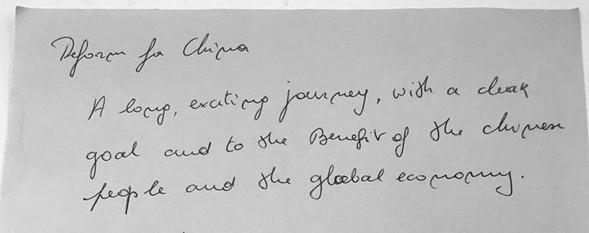
2018-7-25 09:03:43
From:english.eastday.com
郑倩
Belgian Lao Zhu, the “old matchmaker” who has been rooted in China’s ports for ten years
He added that over the years he had seen the focus shifting from port development to inland connectivity with economic centers appearing in inland China.
“Today, the influence of ports stretches far into the hinterland, posing a particular challenge to the overall urban planning of the whole region. Ports are now seamlessly connected to various transport modes with a clear strategic plan that not only takes today’s requirements into consideration, but looks further into the future.”
“In port operation, in the past, all cargo movements required lots of paperwork and a fairly bureaucratic and especially lengthy process. The amount of paperwork was staggering. Quarantine, customs inspection and border control were all separate institutions with separate procedures and paperwork. Now, several government departments have been merged to speed up and simplify procedures. The use of computer technology has gonehand in hand with the further automation of the terminals.”
looking forward to deepening exchanges
Lao Zhu is familiar with China’s reform and opening up. “Over the years, we have seen the whole opening up. It started with Shenzhen and then shifted to Shanghai. In April, 1990, when the CPC Central Committee decided to initiate the plan for developing the Pudong site, previously it was farmland. It is quite spectacular how it has completely changed. Shanghai has become the showcase of the opening up of China, but it’s not just high-rise. It’s also a cluster for wisdom,” he said.
For the port industry, the opening up of China boosts the quality of service and facilitates domestic policy reform. In Lao Zhu’s words, China’s reform is a long, exciting journey, with a clear goal that benefits the Chinese people and the global economy.

Lao Zhu’s evaluation of China’s reform and opening up
